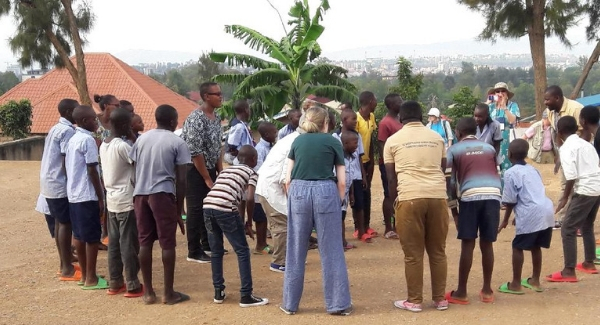Professor of History Kelly McFall is known for teaching genocide studies.
His courses in genocide and memory are highly sought after but he felt that his teaching lacked a certain depth that
During spring break, he and 26 other individuals traveled to Rwanda for a Presbyterian church seminar on peacemaking and reconciliation.
“The goal was to learn more about how the people in Rwanda and the government of Rwanda were trying to re-establish foundations for peace after genocide,” said McFall.
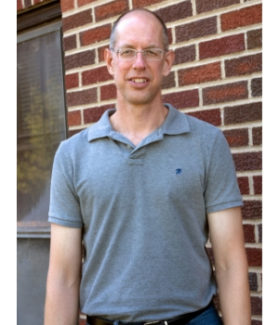
“Partly, the trip was a chance for me to experience the country physically. I’ve studied this country and I studied this genocide for years and years, but this was a chance for me to see and smell and feel what the place is like. And that adds a kind of depth that I’ve never been able to give with my teaching,” said McFall.
The genocide in Rwanda occurred between the Tutsi and Hutu peoples in April, May
McFall and the group visited memorials and museums, listened to presentations from church leaders and government officials and visited with local communities that were trying to build peacemaking and reconciliation efforts. Much of their trip took place in the capital city of Kigali, Rwanda.
The experience overall was highly educational for McFall and since his return in late March, he has already restructured an entire class and made changes to others, he said.
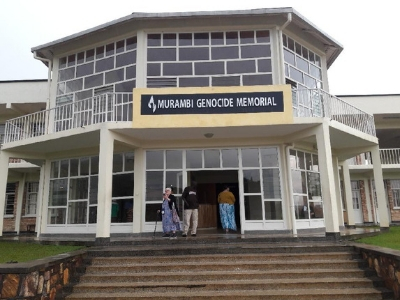
McFall said he would love to take students to Africa and after this trip, feels more confident about the possibility of the venture. He would plan to take students on an educational and service trip, which would include visiting with the Adorers of the Blood of Christ in Tanzania and visiting the church he previously worked at in Kenya as well as the people he worked with in Rwanda.
“Americans have this picture of Africa that’s only a little bit true and we get it from movies and TV. It’s good for Americans to recognize that the world is not quite the way they imagine it,” he said. “In a world where we will be interacting with people from all across the globe, that’s really helpful for us, to get a broader set of experiences that
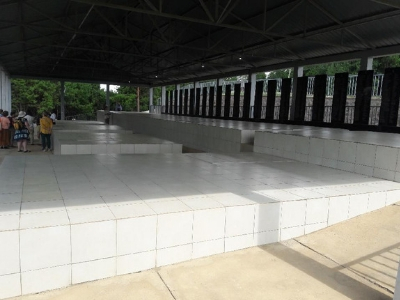
“One of the reasons I’m grateful that I teach at a place like Newman is that I can teach students about issues that have broad, practical, but also ethical significance. And my hope is this trip will help me to help students think harder about their responsibility in a world where violence is all too prevalent.”
McFall will present a Research and Refreshment session about his experiences noon-1 p.m. Wednesday, April 17, from in the Sister Tarcisia Roths Alumni Center. The event is free and open to the public.
“Mostly what I’m going to talk about is the way in which the government has tried to craft a useful or usable past to tell the story of the genocide in a way which is not completely true, but offers the hope of moving past that event,” said McFall.
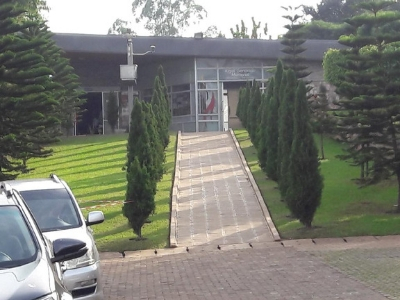
The government’s approach is one McFall struggles with. Altering the story of the past so that it doesn’t fully align with the truth has its benefits but also its obvious drawbacks.
“On the one hand, there’s a virtue in forgetting if remembering means conflict. Maybe it’s better to have people living side by side in peace even if it requires a certain common agreement to ignore some things in the past.”

